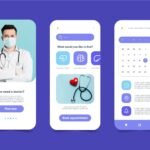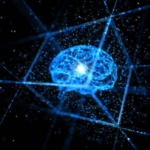The Future of Health IT: Harnessing AI and Technology for Modern Healthcare
In recent years, the healthcare industry has witnessed a paradigm shift, driven by advancements in technology and the integration of artificial intelligence (AI). Health IT has emerged as a cornerstone of modern healthcare, promising to improve patient outcomes, streamline operations, and reduce costs
. In this article, we will explore the transformative impact of AI and technology on healthcare, the challenges that come with these advancements, and the future outlook for Health IT.
The Role of AI in Healthcare
AI has the potential to revolutionize healthcare by enhancing diagnostic accuracy, personalizing treatment plans, and predicting patient outcomes. Here are some key areas where AI is making a significant impact:
- Diagnostic Accuracy: AI algorithms can analyze medical images, such as X-rays, MRIs, and CT scans, with high precision, assisting radiologists in detecting conditions like cancer, fractures, and neurological disorders.
- Predictive Analytics: By analyzing patient data, AI can predict disease outbreaks, patient readmissions, and potential complications, enabling proactive interventions.
- Personalized Medicine: AI can tailor treatment plans based on a patient’s genetic makeup, lifestyle, and medical history, leading to more effective and targeted therapies.
- Virtual Health Assistants: AI-powered chatbots and virtual assistants provide patients with information, reminders, and support, enhancing patient engagement and adherence to treatment plans.
Advancements in Health IT
Health IT encompasses a broad range of technologies that support the management and sharing of health information. Some of the notable advancements include:
- Electronic Health Records (EHRs): EHRs have become the backbone of modern healthcare, providing a centralized repository of patient information that can be accessed by healthcare providers in real-time.
- Telemedicine: The adoption of telemedicine has accelerated, especially during the COVID-19 pandemic, enabling remote consultations, monitoring, and treatment.
- Health Information Exchange (HIE): HIE systems facilitate the secure sharing of patient information across different healthcare organizations, improving care coordination and reducing duplication of tests.
- Wearable Technology: Wearable devices, such as smartwatches and fitness trackers, collect real-time health data, empowering patients to take control of their health and enabling clinicians to monitor chronic conditions remotely.
- Blockchain in Healthcare: Blockchain technology is being explored for its potential to enhance data security, interoperability, and patient privacy in health IT systems.
Benefits of AI and Technology in Healthcare
The integration of AI and technology in healthcare offers numerous benefits, including:
- Improved Patient Outcomes: Enhanced diagnostic accuracy, personalized treatments, and proactive care lead to better patient outcomes.
- Operational Efficiency: Automation of administrative tasks, such as appointment scheduling and billing, reduces the burden on healthcare staff and increases efficiency.
- Cost Reduction: Streamlined operations, reduced hospital readmissions, and early disease detection contribute to significant cost savings for healthcare providers and patients.
- Enhanced Patient Engagement: Digital health tools and mobile apps empower patients to actively participate in their care, improving adherence to treatment plans and overall satisfaction.
Challenges and Considerations
While the potential of AI and technology in healthcare is immense, several challenges need to be addressed:
- Data Privacy and Security: The increased reliance on digital health data raises concerns about data breaches and patient privacy. Robust cybersecurity measures are essential to protect sensitive information.
- Interoperability: The lack of standardization and interoperability among different health IT systems can hinder seamless data exchange and collaboration.
- Ethical and Regulatory Issues: The use of AI in healthcare raises ethical questions, such as bias in algorithms and the accountability for AI-driven decisions. Regulatory frameworks need to evolve to address these concerns.
- Adoption and Training: The successful implementation of AI and technology requires healthcare providers to embrace new tools and undergo training to effectively use these technologies.
The Future of Health IT
The future of Health IT looks promising, with several trends shaping the landscape:
- AI-Powered Predictive Healthcare: The use of AI for predictive analytics will become more prevalent, enabling early intervention and preventive care.
- Precision Medicine: Advances in genomics and AI will drive the growth of precision medicine, offering tailored treatments based on individual patient profiles.
- Remote Patient Monitoring: The adoption of remote monitoring technologies will continue to rise, allowing patients to receive care from the comfort of their homes.
- Interoperable Health IT Systems: Efforts to standardize data formats and protocols will enhance interoperability, enabling seamless data sharing across different healthcare systems.
- AI-Driven Drug Discovery: AI will play a crucial role in accelerating drug discovery and development, reducing the time and cost associated with bringing new drugs to market.
- Blockchain for Health Data Management: Blockchain technology will gain traction in managing health data securely, ensuring data integrity, and enhancing patient control over their information.
Conclusion
The integration of AI and technology in healthcare is transforming the industry, offering new possibilities for improving patient care, enhancing operational efficiency, and reducing costs. However, the journey towards a fully digital and AI-driven healthcare system is not without challenges. Addressing issues related to data privacy, interoperability, and ethical considerations will be crucial to realizing the full potential of Health IT. As we move forward, collaboration among healthcare providers, technology developers, regulators, and patients will be essential to harness the power of AI and technology for a healthier future.




